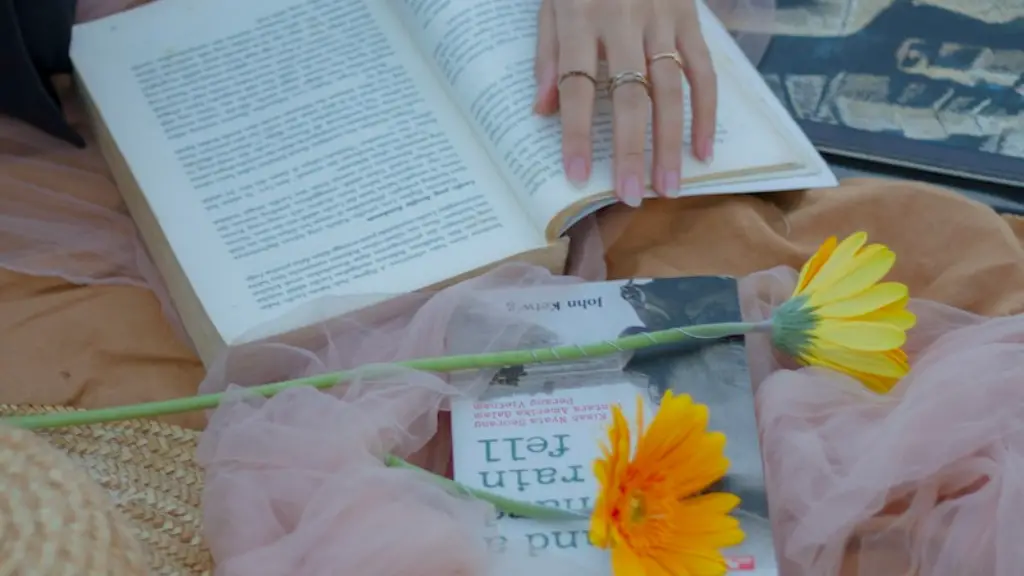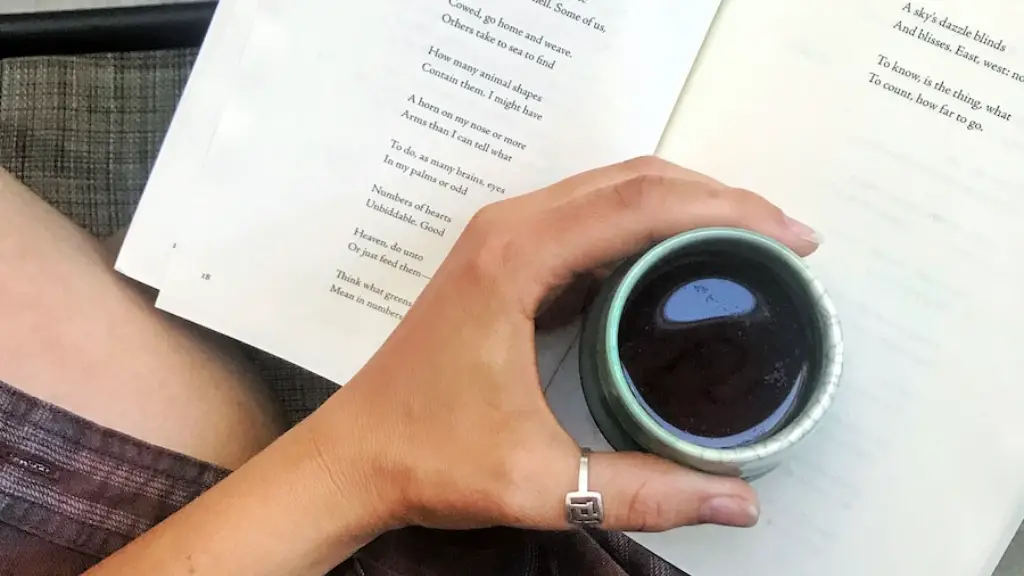Is Poetry Political?
For many centuries, poets have used their words to influence thoughts and to bring attention to a particular cause. In the age of democracy and the fight for justice, poetry is an effective way of presenting political ideas, questions and beliefs. When exploring what it means to be a poet, it is apparent that their words can be seen as a form of political action.
When discussing the political aspects of poetry, it is worth considering the power of poetic language. Ancient stories, literature and poetry are all powerful tools for conveying messages, creating dialogues and connecting people. For example, William Wordsworth’s poem The Prelude, which he wrote after being inspired by the French Revolution, is an example of how powerful and moving poetry can be on a political level.
The use of poems to express political beliefs was given a new platform with the introduction of the first editions of the The New Yorker, the magazine that published the works of renowned poet, W.H. Auden. Auden’s works focused on questions of war, peace, politics and freedom of speech. His poem, “September 1, 1939” reads:
“I sit in one of the dives/On Fifty-Second Street/Uncertain and afraid/As the clever hopes expire/ […] Guilty of hidden hate/Enough to start decline/Of a city in the twilight of such defendants/Infinite pity like a beggar she cries/[…] ”
This poem reflects on the aftermath of World War II and expresses Auden’s views on the political situation of the time. Auden’s poems are an example of how poetry can be used to deliver powerful messages with emotion.
Poetry can also be seen as a vessel for protest and change as poets often use their work to encourage readers to challenge traditions, speak out against injustices and push for social progress. A well-known example of this is the African Beat poet, Amiri Baraka. In his works, Baraka railed against racism and inequality, using simple words and powerful spoken word techniques to convey his message.
The tradition of using poetry to express political opinion continued in the twenty first century with the rise of hip hop and rap. Artists like Eminem and Kendrick Lamar are renowned for their ability to use their lyrics to provoke thought and express their anger and frustration with the political systems in both the United States and across the world.
Many well-known poets have used their words to challenge the status quo and draw attention to causes that are often overlooked. Maya Angelou famously wrote about the Black experience in America and her poetry changed how people viewed race relations. Similarly, contemporary poets such as Warsan Shire use their poetry to bring attention to issues of violence and inequality in the Middle East and Africa.
The Impact of Poetry
It’s evident that poetry can be used to convey political messages. However, the impact of poetry extends far beyond that. There have been a number of studies that suggest that poetry can have a powerful emotional effect on its readers. Poems can trigger empathy, compassion and understanding. Therefore, poetry has the potential to act as a form of protest, one that can be particularly effective in creating social change.
Further to this, poetry can be used as a form of education and activism. For example, organisations like Poetry for Change are using poetry to empower marginalised communities and to promote social justice. The organisation uses workshops and events to give people a platform to share their own experiences and to advocate for social issues through their poetry.
It’s evident that poetry has the power to act as a form of protest and can be a force for change. Through poetry, people can express their feelings, their beliefs and their beliefs about the world. In doing so, they can bring attention to injustices, teach valuable lessons, and provide a platform for social movements. Poetry is more than just words on a page, it is a powerful tool for political action.
The Role of the Poet
The role of a poet in a political setting is incredibly important. Poets are able to create awareness of the issues facing their society, challenge the status quo and evoke an emotional response in their readers. For example, during the Vietnam War, poets such as Yusef Komunyakaa used their poetry to speak out against the injustice and suffering of the war.
It is also essential to consider the responsibility that comes with being a poet during times of political or social unrest. While freedom of speech is a right, it can be a powerful weapon if used recklessly. Therefore, it is important for poets to be thoughtful and considerate when speaking about political matters and not to use their words to incite unrest or prejudice.
The Arts and Politics
The connection between the arts and politics has been discussed for many centuries. Yet, the power of poetry to bring attention to social and political issues still holds true today. Poets can use their words to spread messages of peace and understanding, as well as to challenge norms and fight for justice. Therefore, it is clear that poetry is more than just words on a page, it is a powerful tool for political action.
Acknowledging Political Power In Poetry
There is no denying that poetry has a powerful political message. Therefore, it is important to acknowledge the power of poetry in political discourse. Poetry can be used to express ideas and beliefs, to challenge the status quo, to bring attention to social injustice and to fight for justice. This power should not be taken lightly and poets should be held accountable for their words.
The Power Of Poetry To Transform
Poetry has the power to transform, to change the way we think and to influence our actions. Poets can use their words to create awareness of political topics and to encourage their readers to take action. Furthermore, with the aid of modern technology, poets can bring their words to a much wider audience, giving more people access to the power of poetry and its messages.
The Impact of Poetry on the Political Landscape
Poetry has played an important role in shaping the political landscape in many countries. In countries with oppressive regimes, such as China and North Korea, poets have used their words to speak out against injustice and inspire people to fight for their rights. In more democratic countries, poets have used their words to challenge the status quo, raise awareness of social issues, and advocate for civil rights.
Overall, it is clear that poetry is an important tool for political expression and activism. Whether used to challenge injustice or create understanding, poetry has the power to evoke an emotional response and to create powerful social movements. Therefore, the impact of poetry on the political landscape should not be underestimated.

